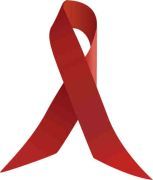
|
Philippines, 23 Jan 2026 |
Home >> News >> Columns >> Rene Bonsubre, Jr. |
 |
||||
|
|
|
|
HIV AND BOXING PhilBoxing.com Thu, 01 Dec 2011  December 1 is World AIDS day. For the past twenty-three years, this day has served as an occasion for concerned individuals and organizations to raise public awareness about the continuing global pandemic caused by the spread of the Human Immunodeficiency Virus or HIV. The most prominent members of the boxing community who died from AIDS-related complications are former WBC world lightweight champion Esteban de Jesus of Puerto Rico and former WBO featherweight champion Ruben Palacios of Colombia. In 1996, former WBO Heavyweight champion Tommy Morrison, known for his role in Rocky V, tested positive on a mandatory HIV test performed by the Nevada Athletic Commission. There are articles posted on the internet saying that he has continued to dispute his HIV-positive status. Paul Banke, a former WBC super-bantamweight champion, became the first major U.S. boxer to publicly acknowledge that he had AIDS in 1995. Early this year, during the Games and Amusements Board (GAB) summit held in Cebu City, I gave a suggestion to have routine HIV screening for professional boxers. Cost cutting became an issue since those who do not belong to big boxing stables have to spend a lot for their laboratory tests. But the screening test is relatively cheap and here in Metro Cebu it costs less than 500 pesos. Local boxers are currently tested routinely for hepatitis but not for HIV. Both are caused by viruses found in the blood. Only those who fight abroad in countries that demand HIV testing have been screened. Considering that more and more boxers are fighting abroad in countries with a high HIV prevalence, it was suggested that boxers who frequently fight abroad should be tested upon renewal of their license. The number of AIDS cases in the Philippines have been increasing. The people who are in charge of contact sports would be wise to re-evaluate their testing policy. The Department of Health (DOH) in the Philippines recorded an all-time high of 253 new HIV/AIDS cases in September, bringing to 7,684 the number of Filipinos known to be infected with the virus. The report showed that the Philippines was one of seven nations in the world which reported a surge in new HIV infections of over 25 percent, according to the 2010 Global AIDS report released by UNAIDS. UNAIDS said that on a scale of one to 10?with 10 being the most alarming?the HIV-AIDS problem in the Philippines was ?five nationally.? But it was ?already eight to nine in specific sites mainly associated with officially reported HIV prevalence.? HIV is passed through sexual contact; through contact with blood or other body fluids (in drug addicts who share contaminated IV needles); intrapartum or perinatally from an HIV positive mother to infant. Contact with sweat, tears or saliva has never been shown to result in the transmission of HIV. The risk of transmitting HIV during sports is small. But it was reported in 1990 in Italy that a previously healthy soccer player with no risk factors acquired the virus during a head collision - which resulted in bleeding - with an HIV positive opposing player. There have been later articles questioning whether this was really the reason for the seroconversion of the said player. Transmission of HIV during bloody streetfights have been reported in medical literature during the 1990?s. Some our readers may already know that I spent two years as a volunteer doctor treating AIDS patients in Tanzania. I have the seen the epidemic up close. That is something I do not want to happen in the Philippines. Our country has enough problems already. People living with HIV are living longer and AIDS-related deaths are declining due to the lifesaving effects of antiretroviral therapy. During my two year stint in Africa, I have seen many adults and children recover, thanks to the antiretroviral drugs that they need to maintain for their entire lives. So, as a friendly reminder - abstinence is the absolute way of avoiding sexual transmission of HIV but if you have to do it, please practice safe sex by using condoms. Having only one sexual partner and being loyal to him or her is also an excellent way to avoid HIV. IV drug users should avoid sharing needles. Health workers are advised to use gloves when in contact with body fluids. Education is the best tool to fight HIV/AIDS. Read about it and talk about it. If for any reason you feel you need to get tested, do not hesitate to consult a physician who can guide you to the various counseling and testing centers nationwide. Be safe. Click here for a complete listing of columns by this author. Click here for a complete listing of this author's articles from different news sources. |
|
|
PhilBoxing.com has been created to support every aspiring Filipino boxer and the Philippine boxing scene in general. Please send comments to feedback@philboxing.com |
PRIVATE POLICY | LEGAL DISCLAIMER
developed and maintained by dong secuya © 2026 philboxing.com. |